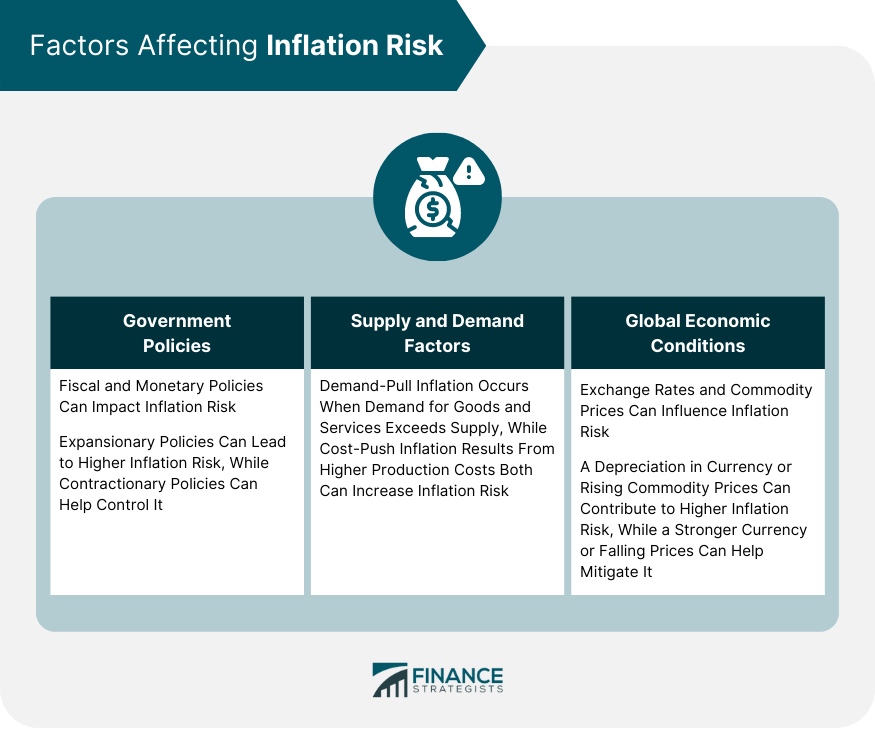
Understanding and Mitigating Economic Inflation Risks: Strategies for Stability
In the complex landscape of economics, inflation stands as a significant factor influencing financial stability. This article delves into the nuances of economic inflation risks and explores strategies individuals and businesses can employ to navigate these challenges effectively.
The Dynamics of Economic Inflation
Economic inflation occurs when the general price level of goods and services rises, leading to a decrease in the purchasing power of a currency. Understanding the dynamics behind inflation is crucial for individuals and businesses seeking to safeguard their financial well-being in an inflationary environment.
Impact on Individuals: Preserving Purchasing Power
Inflation erodes the purchasing power of money, affecting individuals’ ability to buy goods and services. To preserve purchasing power, individuals may need to consider investment strategies that outpace inflation, such as diversified portfolios and assets that historically perform well in inflationary periods.
Challenges for Businesses: Managing Costs and Prices
Businesses face challenges during periods of economic inflation as operating costs rise. Successful navigation requires strategic management of costs and pricing. Implementing efficient cost-control measures and adjusting pricing strategies can help businesses maintain profitability despite inflationary pressures.
Government Measures: Monetary Policy and Inflation Targets
Governments often employ monetary policies to manage inflation. Central banks may set inflation targets to maintain price stability. Understanding these government measures and aligning financial strategies accordingly is essential for individuals and businesses to adapt to the economic landscape.
Investment Strategies: Inflation-Resistant Assets
Investing in assets that have historically shown resilience in the face of inflation is a prudent strategy. Real assets like real estate, commodities, and Treasury Inflation-Protected Securities (TIPS) are examples of investments that may provide a hedge against inflationary risks.
Debt Management: Navigating Interest Rate Pressures
Inflation often leads to changes in interest rates, impacting debt management. Individuals and businesses with variable-rate debt may face increased interest expenses. Proactive debt management, such as refinancing at fixed rates, can help mitigate the impact of rising interest rates during inflationary periods.
Consumer Behavior: Adapting to Changing Trends
Inflation can influence consumer behavior, prompting changes in spending habits. Individuals may opt for essential purchases over discretionary spending during inflationary periods. Understanding and adapting to these changing trends can guide businesses in adjusting their product offerings and marketing strategies.
Global Economic Landscape: Interconnected Risks
In the modern global economy, inflation risks are interconnected. Events in one region can have cascading effects worldwide. Staying informed about global economic trends and their potential impact on inflation is crucial for individuals and businesses operating in an interconnected marketplace.
Risk Mitigation Strategies: A Holistic Approach
Mitigating economic inflation risks requires a holistic approach. This involves a combination of prudent financial planning, diversified investments, effective cost management, and staying informed about economic indicators. Businesses and individuals alike can benefit from adopting a comprehensive strategy to navigate inflationary challenges.
Linking Insights for Proactive Measures: Economic Inflation Risks
For deeper insights and strategies on navigating economic inflation risks, visit Economic Inflation Risks. This resource provides valuable information to empower individuals and businesses in making informed decisions and implementing proactive measures to safeguard financial stability.
Conclusion: Navigating with Resilience
In conclusion, economic inflation risks are inherent in the economic landscape, impacting individuals and businesses alike. Understanding the dynamics, adopting proactive strategies, and leveraging resources can empower financial stability in the face of inflationary challenges. By navigating with resilience and informed decision-making, individuals and businesses can mitigate risks and thrive in a dynamic economic environment.









